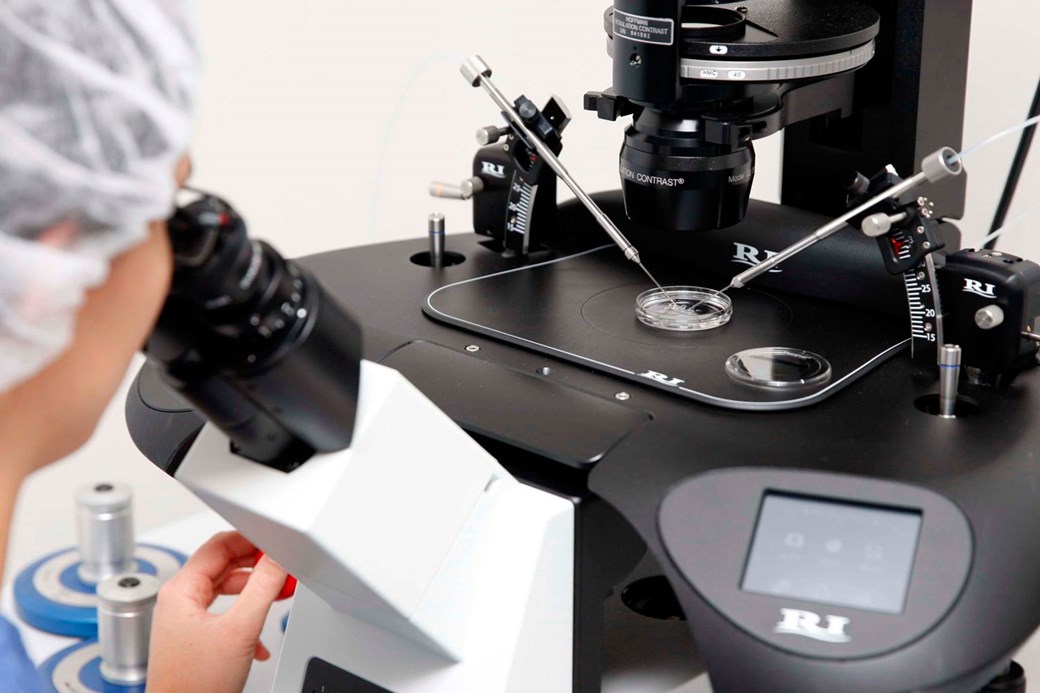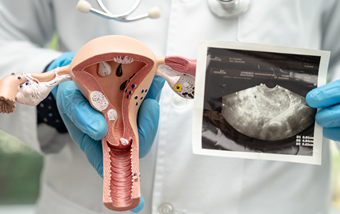IVF treatment is shown to have high success rates as a response to female factor fertility issues. However, in cases where the male factor is the cause, the additional treatment protocol ICSI ( Intracytoplasmic Sperm Injection) has been shown to increase the success rates of IVF. At abc IVF we offer an IVF with ICSI treatment package.
In this blog post, we will explore the pros and cons of ICSI beginning by outlining a brief introduction to ICSI and its purpose. We discuss the reasons for ICSI, focusing on male fertility issues and other potential causes. Finally, we detail the advantages and disadvantages of ICSI, as well as some additional considerations to keep in mind.
What is ICSI?
ICSI is a specialised fertility treatment that involves injecting a single sperm directly into an egg. It is commonly used in cases where there are male fertility issues, such as poor sperm motility , low sperm count and abnormal sperm shape.
Reasons for ICSI
ICSI is primarily used to overcome male fertility issues.
Conditions that may require ICSI:
- Asthenospermia (poor motility of the sperm): Sperm with reduced ability to swim towards the egg may have decreased chances of natural fertilisation
- Oligospermia (low sperm count): Insufficient number of sperm for natural fertilisation can lead to difficulty in achieving pregnancy
- Teratozoospermia (abnormal shape of the sperm): Sperm with abnormal morphology can reduce chances of successful fertilisation
ICSI may also be necessary for reasons other than male fertility issues, such as:
- Lack of fertilised egg during prior IVF cycles: If previous attempts at IVF did not result in successful fertilisation ICSI can increase the chances of fertilisation and subsequent pregnancy
- PGTA – By using ICSI with PGT-A, it makes the PGT-A more accurate. This is because with IVF many sperm may bind to the outside of the egg leaving a genetic residue.
Pros of ICSI:
ICSI offers several benefits that can increase the chances of successful fertilisation and pregnancy.
ICSI has higher success rates where male factor issues are present.
ICSI allows for successful fertilisation despite low sperm count or poor sperm quality.
The process allows for the selection of the best-quality sperm for fertilisation which increases the likelihood of producing healthy embryos.
ICSI enables couples to have a biological child despite male fertility issues as a result the genetic link between the parents is preserved
ICSI Risks:
While ICSI offers numerous benefits, there are also some potential drawbacks to consider, one of these is the
potential damage to eggs.
The injection process may cause damage to the eggs which can lead to a lower chance of successful fertilisation.
Another risk to consider is a limited sperm sample. In cases of severe male infertility, obtaining an adequate sperm sample may be challenging. ICSI requires only a single sperm, but this can limit the number of embryos available for transfer.
ICSI does not eliminate the risk of genetic abnormalities in embryos. The procedure does not detect certain genetic issues, leading to an increased risk of passing them on to the child.
ICSI is a more complex and expensive procedure compared to conventional IVF meaning additional procedures, such as sperm retrieval, may be required. Your consultant at abc ivf will review these risks with you in your initial consultation.
Not all eggs collected will be mature enough to be injected with the sperm. This is normal.
Further considerations of ICSI
Unexplained infertility:
Your consultant may suggest ICSI in cases of unexplained infertility where the cause is unknown and the subfertility duration is longer than 2 years. It offers a potential solution when other fertility treatments have been unsuccessful. ICSI increases the chances of successful fertilisation as it bypasses any potential barriers to fertilisation that may be present in cases of unexplained infertility. Furthermore, ICSI allows for the selection of the best-quality sperm for fertilisation. This is particularly important in cases of unexplained infertility, as it increases the likelihood of producing healthy embryos. By selecting the healthiest sperm, ICSI helps to maximise the chances of achieving a successful pregnancy.
Higher maternal age:
Advanced maternal age can affect fertility and the success of IVF treatments. ICSI may be recommended for older women to increase the chances of successful fertilisation. ICSI offers a potential solution for older women by directly injecting a single sperm into each egg, bypassing any potential barriers to fertilisation. This increases the chances of successful fertilisation, even with lower-quality eggs. Additionally, the selection of the best-quality sperm for fertilisation increasing the likelihood of producing healthy embryos. This is particularly important for older women, as the risk of genetic abnormalities in embryos increases with age.
Low egg numbers retrieved at egg collection.
In some cases, a limited number of eggs may be retrieved during the IVF process . ICSI can be used to maximize the chances of fertilisation with the available eggs.
Should I consider ICSI?
During your initial consultation your consultant may present ICSI as an option depending on the results of your scan. If ICSI could increase the chances of successful fertilisation in your individual circumstance, our team will be available to provide any guidance and support needed in order to help you to make an educated decision. When considering ICSI, it is essential to evaluate the pros and cons, as well as your own circumstances and medical advice.
ICSI is a valuable fertility treatment option for couples facing male fertility issues or other challenges. At abc IVF we offer ICSI as it shows increased fertilisation rates, overcomes male infertility problems, and preserves the genetic link between parents. However, it is important to be aware of the potential risks, such as damage to eggs, limited sperm samples, increased risk of genetic abnormalities, and the associated cost. Further considerations, such as unexplained infertility and higher maternal age, should also be taken into account. If you are considering ICSI, our team at abc is available to provide personalised guidance based on your specific circumstances and the results from your initial scan and consultation.
In conclusion, ICSI is a highly effective fertility treatment option for couples facing male fertility issues or other challenges. It offers increased chances of successful fertilisation and pregnancy, allowing couples to overcome obstacles and fulfil their goal of having a child. It is important to carefully consider the factors which would make ICSI beneficial for your treatment needs. Our team at abc IVF are here to provide the necessary guidance and support to help you make an informed choice.




